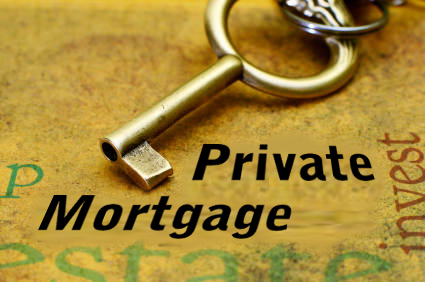Just how It Works: A Comprehensive Guide to Mortgage Lending for First-Time Customers
Steering the globe of mortgage lending can be daunting for first-time buyers. Recognizing the fundamental components like principal, passion, and down repayments is important. Additionally, identifying the various kinds of mortgage and the application process can greatly impact one's experience. By checking out vital aspects that affect rate of interest, customers may reveal useful insights. What else should they take into consideration before making such a considerable economic commitment?
Comprehending Mortgage Essentials
When newbie purchasers get in the domain name of homeownership, recognizing mortgage essentials becomes vital for making educated decisions. A home mortgage is basically a funding secured by the property being purchased, enabling individuals to purchase a home without paying the full cost upfront. Buyers need to recognize key components, including principal, passion, tax obligations, and insurance coverage, usually summed up as PITI. The principal is the amount obtained, while interest is the cost of borrowing that amount, shared as a portion. Taxes and insurance coverage are added prices that can noticeably impact monthly settlements. Customers should also consider the car loan term, normally 15 or three decades, which impacts repayment amounts and overall interest paid. Comprehending credit rating is important, as they affect loan qualification and rates of interest. Understanding these essential principles empowers novice purchasers to browse the mortgage landscape confidently and choose that straighten with their economic objectives.
Types of Mortgage Loan
When taking into consideration mortgage choices, newbie purchasers frequently run into two primary kinds: fixed-rate and adjustable-rate home mortgages. Fixed-rate home loans supply security with regular settlements over the lending's term, while variable-rate mortgages can give lower first prices that might fluctuate gradually. Comprehending these differences is crucial for making a notified decision.
Fixed-Rate Mortgages
Fixed-rate home mortgages offer security and predictability for first-time homebuyers navigating the intricacies of home funding. With a fixed-rate mortgage, the rates of interest stays continuous throughout the loan term, normally varying from 15 to three decades. This consistent price enables buyers to plan their budget plans effectively, understanding that their regular monthly payments will not change. First-time customers profit from this structure as it removes unpredictability in lasting monetary commitments. Additionally, fixed-rate home loans frequently include lower initial rates contrasted to adjustable-rate alternatives, making them an attractive choice for those seeking to establish home equity in time. On the whole, fixed-rate mortgages offer a straightforward course to homeownership, ideal for people seeking lasting economic safety.
Adjustable-Rate Mortgages
For new property buyers looking for flexibility, adjustable-rate home loans (ARMs) can give an attractive alternative to fixed-rate lendings. ARMs usually supply reduced first rate of interest, making regular monthly repayments extra economical in the early years. These prices rise and fall after an initial fixed duration, which can lead to enhanced payments over time. Consumers should recognize the index and margin that figure out future price changes. Commonly, ARMs have modification durations of one, three, or 5 years, with routine caps to limit exactly how much prices can raise at each adjustment. While ARMs can be useful for those planning to offer or re-finance before the rate changes, they likewise bring dangers if market problems alter significantly. Comprehensive research study is necessary for notified decision-making.
The Mortgage Application Process

Secret Aspects Affecting Rate Of Interest

Deposits and Closing Costs
Comprehending down payments and closing costs is important for newbie buyers, as these expenditures considerably influence the general price of a home mortgage. A down payment is the first amount paid towards the home's acquisition rate, normally expressed as a portion. It can range from as low as 3% to 20% or more, depending on the finance kind and lender requirements. A bigger deposit can reduce month-to-month mortgage payments and eliminate private mortgage insurance policy (PMI), which secures lenders in case of default.Closing expenses, on the various other hand, include numerous fees sustained during the home-buying procedure. These may consist of finance origination charges, evaluation charges, title insurance, and attorney costs, typically completing 2% to 5% of the home's acquisition cost. First-time customers must budget plan for both deposits and closing costs to ensure they can safeguard their mortgage and effectively navigate the home-buying procedure.
Tips for First-Time Homebuyers
What crucial suggestions can newbie buyers follow to navigate the commonly tough process of buying a home? First, establishing a sensible budget plan is important. Buyers ought to analyze their monetary situation, including income, expenditures, and prospective mortgage repayments. Next off, getting pre-approval for a mortgage can supply clarity on what one can afford and strengthen their right here setting when making an offer.Researching areas is just as important; purchasers should consider elements such as services, institutions, and future developments. In addition, it is suggested to work with a certified realty agent that can offer useful understandings and advice throughout the purchasing process.Home inspections should not be overlooked, as they can uncover covert problems that might influence long-term complete satisfaction. Ultimately, buyers need to remain client and adaptable, recognizing that finding the ideal home might take time. By adhering to these tips, new buyers can come close to the marketplace with self-confidence and expertise.
Frequently Asked Questions
What Files Are Required for Mortgage Pre-Approval?
For mortgage pre-approval, people typically need to give revenue confirmation, work background, credit history records, income tax return, financial institution declarations, and details of any financial debts (Private Mortgage Lenders Savannah GA). These papers assist loan providers assess economic capability and establish financing eligibility
Can I Obtain a Mortgage With Bad Credit Scores?

Lots of loan providers consider candidates with bad credit score, though terms might differ. Greater rate of interest or bigger deposits could be required. Discovering alternatives with specialized lending institutions or government programs can also enhance possibilities for authorization.
For how long Does the Mortgage Authorization Process Take?
The mortgage approval procedure normally takes in between 30 to 45 days. Aspects influencing this timeline include the lender's effectiveness, the borrower's economic paperwork, and the intricacy of the financing application. Delays might happen because of additional needs.
What Occurs if I Miss a Home Mortgage Repayment?
If a mortgage payment is missed out on, late costs might be sustained, and credit history can endure. Extended non-payment may bring about foreclosure procedures, triggering the loan provider to redeem the home after a collection of warnings.
Can I Re-finance My Mortgage Later On?
Re-financing a home loan later is typically feasible, enabling property owners to readjust their lending terms, rate of interest prices, or regular monthly repayments. Qualification depends on credit scores, current market conditions, and the existing mortgage's terms.
Comments on “What Makes private mortgage lenders savannah ga Stand Out in a competitive lending market?”